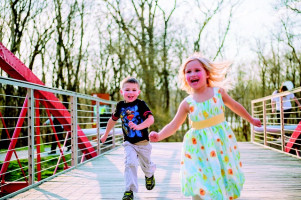
Around 160 paediatric oncology stakeholders from 31 countries have committed to a strategic undertaking with life-enhancing potential: a long-term European Paediatric Cancer Plan for better care and research for children and adolescents with cancer.
This impressive multi-stakeholder group attending the SIOPE-ENCCA Conference 2014 ‘Joining Efforts for a Brighter Future for Children and Adolescents with Cancer – The European Roadmap to Horizon 2020’ (18-19 September 2014) shared and discussed expert opinions, experiences and best practices in every area of paediatric oncology research, treatment, care and follow up.
Childhood cancer remains a serious public health issue: 6,000 children still die of cancer every year, access to paediatric oncology standard care and research varies enormously across Europe and there has been little progress in difficult-to-treat diseases over the last 5 years.
At the same time, there are strategic/quality of life issues facing childhood cancer survivors, who are now 1 of every 1,000 European citizens.
The SIOPE-ENCCA Conference – co-organised with the parents’ representatives from ICCCPO Europe – therefore aimed to ensure the widest possible consensus on a comprehensive roadmap designed to increase the cure rate in poor prognosis malignancies, to eradicate inequalities in childhood cancer care in Europe and to increase the quality of life of childhood cancer survivors.
This roadmap is the outcome of the coordinating efforts of SIOPE (the European Society for Paediatric Oncology) and ENCCA (the FP7 project ‘European Network for Cancer research in Children and Adolescents’) at the European level.
"Europe remains strongly committed to making progress for children with cancer and childhood cancer survivors", said President of the European Council H. Van Rompuy in his video address at the event, where he also acknowledged the impact of paediatric oncology clinical research in enabling life-saving achievements over the past decades.
Ms G. WiIlmott, Member of the European Parliament, reiterated her long-standing support to EU regulatory initiatives in line with the newly adopted roadmap, and highlighted the recent endorsement by 16 MEPs of the Manifesto for Paediatric Oncology.
At the same time, challenges remain.
Participants agreed with Prof R. Sullivan that the needs of children with cancer are "not high [enough] on the political radar".
Thus, Prof N. Forgo focused on the EU Data Protection Regulation, which could threaten clinical research and therefore requires the urgent involvement of the European haemato-oncology community, while Prof G. Vassal, SIOPE President, drew attention to the need to develop paediatric medicines against specific targets to increase the cure rate.
Furthermore, survivors need access to adequate follow-up and relevant high-quality care, but currently face an extreme variability of services in Europe – a problem that the ‘Survivorship Passport’ initiative (developed via ENCCA and other EU projects and also presented at the event) tries to address.
Other insights on key areas linked to the roadmap came from Prof K. Pritchard-Jones, who stressed the need to invest in outcomes research. Prof J. Kowalczyk presented the results of a SIOPE-led survey which showed that only 50% of the paediatric haemato-oncology centres in Europe fulfil the criteria set in the ‘Standards of care’.
To address this situation, ENCCA Coordinator Prof R. Ladenstein described ExPO-r-Net, a new EU project which will bring available treatments to a better level of quality and accessibility.
Finally, SIOPE President-Elect Prof M. Schrappe underlined the need to speed up innovative paediatric drug development on our continent.
Participants strongly agreed on the need for concerted efforts of health professionals, researchers, parents, industry, policy makers, regulators and charities in order to speed up developments with regards to the newly agreed roadmap.
SIOPE and the European paediatric haemato-oncology community joined forces to create a brighter future for all children and adolescents with cancer: this ground-breaking event successfully ended with the commitment of all participants to jointly work on a ‘European Paediatric Cancer Plan’ addressing both care and research.
This Conference – taking place in September, the international ‘Childhood Cancer Awareness Month’ – has been a crucial step towards making this future a reality.
Source: SIOPE
The World Cancer Declaration recognises that to make major reductions in premature deaths, innovative education and training opportunities for healthcare workers in all disciplines of cancer control need to improve significantly.
ecancer plays a critical part in improving access to education for medical professionals.
Every day we help doctors, nurses, patients and their advocates to further their knowledge and improve the quality of care. Please make a donation to support our ongoing work.
Thank you for your support.